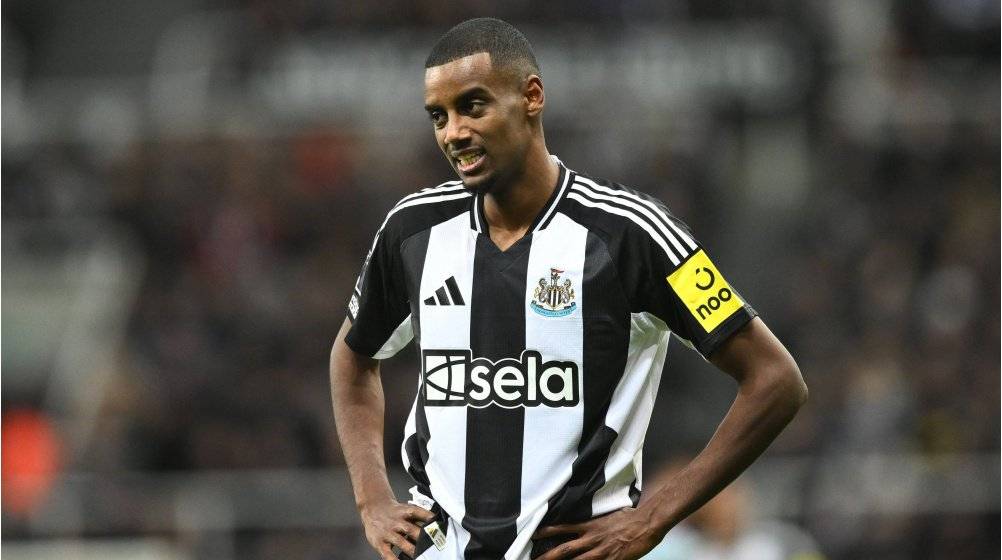Transfer season is about to end—at least for Europe’s top leagues as ranked by FIFA. However, looking at the transfer market, one can clearly see the woes of players seeking a move but being blocked by their parent clubs. In fact, this is a tale of broken promises and how players are treated like slaves, expected to “honor” their contracts by fans while being denied the right to move. Meanwhile, if a club wants you out, they treat you like a piece of trash until they can get rid of you.
Of course, players are only celebrated as heroes when clubs decide the timing of their exit with a farewell post. But if a player wants to leave—like Victor Osimhen—he suddenly becomes the villain in the story.
We all know Osimhen’s story: he was racially abused by his own club yet still signed a new deal to give Napoli control, complete with a homogenous release clause and a gentleman’s agreement that if a certain offer came, the club would sell. PSG made that offer, yet Napoli vehemently refused to sell him, instead attempting to push him toward Chelsea for a lower transfer fee and lower wages than what he had agreed with PSG.
Then, this same club sells Kvaratskhelia to PSG without any fuss—in the middle of a title-winning season, no less. It’s obvious they pick and choose whom to frustrate. I laugh when I see Napoli fans talk about Osimhen “ruining his legacy” or claim Lukaku is better than Osimhen. While I have nothing against Lukaku, comparing him to Osimhen with big words like “he’s a team player” is pure delusion, especially given how the same fans wanted Osimhen to stay despite ill-treatment, only for the club to try to ship him off to Turkey. The player turned what was meant to be a humiliation into a success.
Someone even said Giovanni Simeone is a bigger legend than Osimhen. Of course, we all know that’s not true. Make your own happiness. The only reason Simeone received an emotional farewell was because he left when the club didn’t need him anymore. What about Koulibaly? The president refused to let him leave for years, only to eventually sell him to Chelsea for less when he was past his prime. Or Mertens, whom they simply let go for free?
Now let’s talk about Ademola Lookman. Apparently, the Nigerian forward had an agreement with Atalanta last season after they refused to sell him to PSG. But when Inter Milan came calling, they refused to sell again and frustrated him. Lookman had to release a statement citing “broken promises” and “poor treatment as a human being.” Some may argue Atalanta didn’t want to sell to a league rival, but wasn’t this the same club that recently bought a player from Inter? So, do the rules only apply when they’re buying?
Now the deal with Inter is off, and Lookman—having submitted an official transfer request—has lost his loyalty bonus. Ironically, Atalanta are now open to reintegrating him because they have no better players. But here’s my question: how can you force a player who doesn’t want to play for you anymore to step onto the pitch?
Look at how Raheem Sterling, Rasmus Højlund, or even Marcus Rashford—especially Rashford—were vilified despite Rashford being a Manchester United academy graduate.
Which brings me to the latest player being painted as a villain: Alexander Isak. Let’s be honest: as a United fan, do I want Liverpool to get Isak? No. But the way Newcastle has handled this situation—throwing him under the bus in front of the fans—has been nothing short of disgraceful.
Isak reportedly gave Newcastle four months’ notice to find a new striker, informing them that last season would be his last. Anyone paying attention could see Newcastle were searching for a replacement. All the talk of a 4-4-2 with a “new striker alongside Isak” was nothing but a smokescreen. Now, having failed to find a replacement, Newcastle are trying to hold him against his will. Isak is not responsible for their failure in the transfer market. This isn’t even about the money anymore—they simply can’t find a replacement. No wonder Isak has gone on strike; he knows they don’t intend to let him go this summer. His actions are justified, especially after Eddie Howe subtly admitted that Isak informed the hierarchy of his desire to leave months ago.
Some people ask, “Why is Isak trying to force a move at the end of the window? Shouldn’t he have done this earlier?” This just proves that Isak acted respectfully, expecting the club to honor his wishes. He only took drastic measures after being told he couldn’t leave because Newcastle’s sporting director failed to do his job.
Clubs have the right to force players out—sending them to train with the U21s as a form of humiliation—so players should also have the right to force their way out. A footballer’s career is short. Those of you insisting players “respect their contracts” wouldn’t hesitate to quit your job on a month’s notice if you found a better offer.
Stop the hypocrisy. Players have the right to check, just as clubs do.




No comments yet
Be the first to share your thoughts!